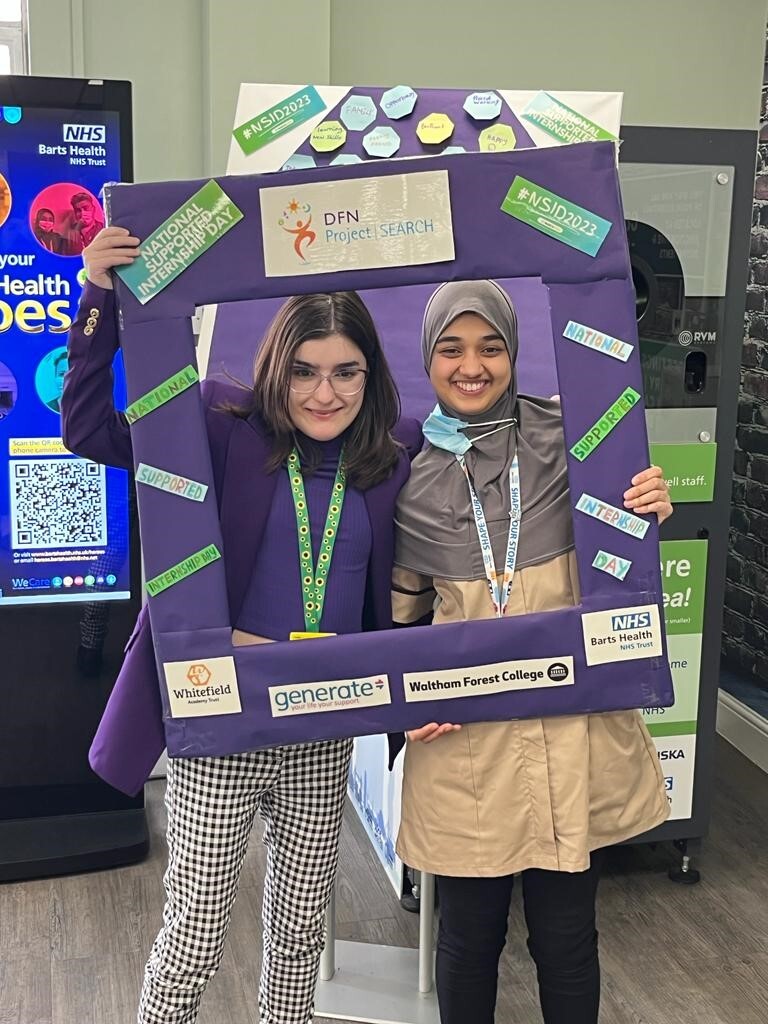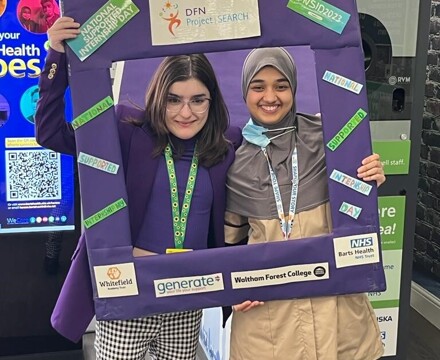Changing Perceptions: The Transformative Impact of Supported Internships
BackChanging Perceptions: The Transformative Impact of Supported Internships
Janet Wingate Whyte
Head of Supported Internships
Whenever I talk about our supported internship programme at Whipps Cross and St Bartholomew's Hospitals, I always describe the transformative impact it has on the lives of our young people. I cannot overstate just how much our interns grow in confidence during their time with us and how much more independent they become.
But it’s not just our interns who are changing. Since we began our supported internship programme 11 years ago, we have also seen how long-held perceptions of people with additional needs are transforming.
When, what is now Flourish Learning Trust, first began our supported internships programme, we came up against a lot of brick walls. Whilst everyone at the hospital had good intentions and wanted to be accommodating, they simply could not envisage how our interns could fit into their department, let alone be able to carry out the job effectively. People just did not believe that our interns were capable of doing the job.
But now, it’s thankfully a totally different story. Over the past 11 years, our successive cohorts of interns have proved over and over again precisely what they are capable of. They have shown themselves to be reliable, hard-working and committed employees who have made themselves indispensable members of their departments. Now, rather than having to convince departments to take in interns, the departments are quite literally knocking on our door asking to host one.
Our interns have been fantastic ambassadors for young people with additional needs. They have displayed an excellent work ethic with positive attitudes and a determination to succeed. They have shown that with the right reasonable adjustments in place, they can be an asset to the workplace. Indeed, they have proved that there is a pool of talent just waiting to be unlocked.
This change in perceptions amongst the hospital’s staff has been dramatic. Not only have the interns been accepted within their departments but their contributions have been recognised and praised. But, most significantly, the hospital has put our interns on the payroll awarding them full-time, permanent employment when they graduate from the programme. At Whipps Cross Hospital, there are currently about 50 graduates of our programme working in jobs which had previously been considered unsuitable for those with additional needs.
It has been a pleasure to see our graduates excel in these roles and become full and valued members of their teams. But they are not just fulfilling a role, they are also adding value. People with additional needs often have different ways of thinking and our graduates are regularly bringing a fresh perspective and suggesting alternative ways of making processes more efficient. As a result, our graduates are gradually climbing the career ladder and taking on more and more challenging roles.
There are countless examples of this including Jess, whose first placement was in catering where she carried out very simple tasks. She quickly progressed to Outpatients and Facilities and is now a front-desk receptionist at Whipps Cross Hospital greeting all visitors when they arrive and handling their queries.
Having a young person with additional needs in a people-facing role would have been unthinkable a decade ago when it was felt they could ‘only do a coffee job’ or make deliveries. But I am glad to say that this is no longer the case and we now even have an intern placement in the fast-paced Accident and Emergency Department.
Our interns have opened the door for many, many more young people with additional needs and they have had a meaningful impact on recruitment processes. For example, at Barts Health NHS Trust, the application form and interview process have both been redesigned to take account of those with additional needs.
It is a privilege to watch the personal journeys of growth and progress of our interns and witness how proud they make their families. But it is also very gratifying that through our programme we are bringing about a culture change in the workplace with employees embracing those with additional needs and recognising the value they can bring.
We are only at the very beginning of this attitudinal shift but with our incredible young people acting as superb advocates, I have no doubt we will continue on this positive trajectory.



